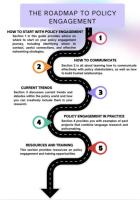“My main take-away? That there is a large corpus of work already underway to advocate for the value of modern languages, and that any efforts to do so will be more effective if they are joined up.”
These words, from a participant in our ‘Policy Engagement for Linguists’ events last year, go to the heart of the challenge facing languages today. Across our sector we are short neither of energy nor ideas; what we lack are the infrastructure and capacity for coordinated, collaborative action. It is this collaborative action that I have sought to establish in the MML Faculty with an OPEN Leaders Award.
This award from the relatively new Oxford Policy Engagement Network [OPEN] arrived as The Queen’s College Translation Exchange [QTE], the advocacy and outreach centre that I founded here at Oxford, celebrated its fifth birthday. QTE was initially conceived as a project to bring creativity and culture into languages classrooms across the UK, and so to connect the dynamic experience of a university languages degree with the primary and secondary classroom. But by the time we turned five, our ambitions had grown.
The greatest surprise in those first five years was the way in which our Anthea Bell Prize for Young Translators had taken off. This programme brings literary translation to young learners in dynamic and inclusive ways, privileging creativity alongside linguistic accuracy – in contrast to a school curriculum that leaves little space for culture and creativity. We designed this prize, which is open to 11-18 year olds, because we knew that Creative Translation is a hugely effective way of increasing enthusiasm for language learning, making the languages classroom a more inclusive space, and showing young people what it means to be a linguist. The significant uptake (16,000+ students per year) and enthusiastic responses from teachers and pupils swiftly made it clear that this programme fills a gap that is keenly felt in the classroom, and is perhaps summed up by these quotes from participating teachers:
“This programme has really helped us to recruit students for A level next year. We had not been able to have the right number of students to run the course for the last two years, so it has been amazing to see how the little club we run for this competition has made such a difference in the appreciation of the language from our students.”
“The Anthea Bell Prize offered us a real example of the relevance of language study. As a department we are truly grateful that this initiative is gathering momentum at a time when recruitment of language learners remains a challenge.”
As we learned about the appetite for this work and the impact it has on young linguists as well as their teachers, it began to feel imperative for us to engage at a policy level. If our work is limited to direct delivery in schools, then we can only tweak around the edges of a system that is not serving our young language learners well, with over 50% giving up languages at age 14. For this reason, our fifth birthday also marked the launch of our policy engagement strand.

OPEN Leaders
Oxford Policy Engagement Network [OPEN} is a new initiative within the University that supports researchers to collaborate effectively with the policy community. Their OPEN Leaders awards strengthen leadership for policy engagement within faculties. My project aimed to build infrastructure and capacity for policy engagement within and beyond MML. To do so, we assembled a team of early career researchers to support four strands of activity. First, we mapped the status quo for policy engagement in MML, finding that excellent work had been done over many years by individuals, but that this impact had not been embedded into Faculty structures, and that it relied on contacts and networks that risked being lost when those individuals left the University. We then collaborated with members of the Cross-Government Languages Group to map the status of the ‘languages agenda’ in government, which is gaining traction through the concerted efforts of this group of senior civil servants, in collaboration with academics from a range of institutions.
Alongside these mapping projects, we designed and ran a training programme for early career researchers, including a series of webinars open to researchers from across the UK. These webinars were lively and dynamic, a testament to the great energies within our researcher community. The impression from all our engagement with early career researchers is that they are keenly aware of their potential to, and the urgent need for linguists to, engage with the policy community, and frustrated that they have not to date had the opportunity to learn how to do so. Finally, we established a cross-faculty network for policy engagement, recognising that we MML-linguists can only achieve so much if we do not collaborate and share resources and learning with the Faculties of Classics and Asian & Middle Eastern Studies, and the Department of Education – for a start.
The need for embedded structures and networks, for collaboration and coordination, shone through all our learning from this project, and determines the recommendations for a policy engagement strategy that we are currently working on. This need is recognised across the sector, evidenced most strongly by the new campaign for ‘concerted collective action’ led by the Institute for Languages, Cultures and Societies (University of London) and by the new Languages Gateway. As the incoming chair of the Languages Gateway’s Editorial Group, I am working now to implement everything we learnt in the OPEN Leaders project into a national endeavour to raise the profile of languages within and beyond the policy community, and I look forward to Oxford MML taking a leading role in that process.
We would be delighted to hear from MML alumni and friends interested in finding out more: charlotte.ryland@mod-langs.ox.ac.uk